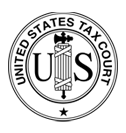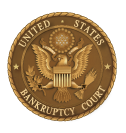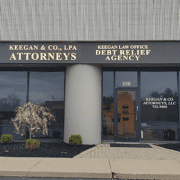Bankruptcy Chapter 7 v. Chapter 13
For most once they decide to file bankruptcy the decision comes down to which Chapter they will be filing. Both chapters are beneficial in their own way. Many factors play into which chapter you will file. Your income and assets are the main considerations. Your attorney will discuss with you the process and your best option.
BANKRUPTCY TIMELINE
In Ohio a typical Chapter 7 bankruptcy lasts about six months from the day you see us until you receive your discharge. Your meeting date which is called a “341 Meeting” will be four to five weeks from your filing date. These are currently held by phone at our office. In Chapter 13 expect to be in the case for a period of three to five years as this time period is mandated by federal law. Once your complete your Chapter 13 you will receive your discharge.
PAYMENT OF DEBTS
In bankruptcy debts are classified into basically two groups – unsecured debts (credit cards, medical debts, loans) and secured debts (houses, cars, anything secured by collateral). There is also a sub-category of unsecured loans which are called priority debts. Student loans and tax debts fall into this category. In Chapter 7 you will be able to discharge all of your unsecured debts and not have to pay anything back. Student loans and most taxes will likely survive the case. As to secured debts that you want to keep (such as your home or vehicle) you continue to make your payments and sign a reaffirmation agreement within the case.
Chapter 13 is a re-payment plan. Under this re-payment plan you will pay all of your debts with a single payment to the Chapter 13 Trustee once a month. Out of this monthly payment the trustee may make your regular house payment. Home payments in arrears are caught up through your Chapter 13 payment. Vehicle payments will also be paid through the trustee. You will pay back a percentage of your unsecured debts. This percentage is based on several factors and can range from 1 percent to 100 percent. The debts will be paid in order of priority. So basically in a Chapter 13 you have one payment a month to the Chapter 13 office.
ASSETS
In Chapter 7 if you are not current on your home the lien holder will require that you get current or they may file for Relief from Stay which, once granted, will allow them to foreclosure. However, if you are current on your home Chapter 7 is not a problem, just continue to make your payments and you may reaffirm the debt. An single individual has a home equity exemption from creditors and the bankruptcy court of $145,425 ($290,650 for a married couple).
Chapter 13 is designed to help you save your home if you are behind on your payments. Under Chapter 13 you will have three years to make up your missed payments. Delinquent car payments may also be made up in a Chapter 13.
MORE INFORMATION
Call today to set up your free consultation to find out which bankruptcy chapter is best for you. We have represented 1000’s of clients over 30 years. We’ll make the bankruptcy law work for you!








